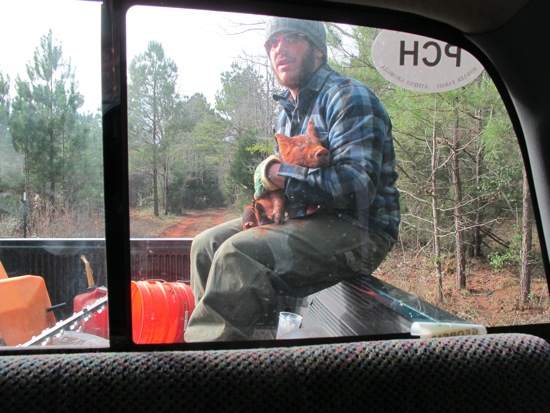pasture raised birds, and how not to fail at things

this morning I dropped an egg on the floor. not such a thrilling story, but revelatory none the less. I always—regularly and often—advocate for people to purchase pasture raised birds and eggs from a local farmer. but I buy free range, they say. but I buy organic. these are steps in the right direction, for sure, although generally not in the way the buyer may be thinking. free range invokes images of pasture. of sunshine. of, well, some mother fucking range! excuse my french, but am I wrong?
organic, as you may know, is no longer a word that describes a chemical-free, back to basics, grassroots farmer’s revolution of a generation past, but rather it is a word wholly owned and incorporated by the usda. an organic egg, for example, simply means that the bird ate chicken feed which is certified organic by the us government. while that implies a few facts about the feedtstuff and grains which make up the chicken feed, it reveals absolutely zero information about the conditions under which the bird itself was raised. a bird living in an inch of fecal matter, cramped into a tiny cage, and surrounded by a hundred thousand other birds is considered organic as long as the feed that gets shoveled down its gullet is certified organic. not exactly the product im looking for, but thanks for tryin’ guv’na.
free range? try this on for size: free range implies “access to outdoors”. access to outdoors means that at six weeks of age a small trap door in the side of the chicken factory house is unlocked. the birds, now six weeks old, have the amazing opportunity to leave the only environment they have ever been in and enter the insane outside elements beyond their heretofore edge of the world walls. fifteen days after this privilege is granted, they are slaughtered. and not a day too soon, either, as I’m sure they were aaaalmost tempted to investigate the fenced in dirt patch wonderland which lay beyond their now unlocked side hatch door.
pasture raised birds, however, like the ones we just finished raising and slaughtering here at the backyard moon, are a horse of a different color. after a brief fourteen day period where our birds live in a five star baby chicken brooder motel we designed for them, they are moved to fresh pasture, where they will graze the rest of their days.
they live in a predator proof , floorless pen, hand built by us, using mostly scraps, which is hand pulled each and every morning to a completely fresh patch of pasture. fresh grass. fresh legumes. fresh worms and grubs and bugs and spiders. fresh minerals. so fresh, and oh so clean. we feed them gmo-free feed made of organically grown grains. (as we are reminded: this alone means some, but not enough).
our birds know what the rain feels like, they know what the sun feels like. wind has brushed their richly colored feathers and a full spectrum of minerals and micro nutrients course through their veins. their muscles grow strong, their tendons elastic and powerful. if you have never cooked a pasture raised bird, and felt the resistance these muscles and tendons give you as you break a leg off the steaming chicken, you would forever be repulsed by the soft, flimsy pull of a supermarket broiler's barely used limbs.
so, as I was saying: this morning I dropped an egg on the floor.

the egg in question, was raised by my good friend dan over at darby farms. a six foot fall from my upward moving right hand as I prepared to crack it into some hot oil.
would ya look at it? beautiful, no?
so many things struck me as impressive. its white--a homogenous and seamless, amoeba shaped specimen. no start, and no end—a fully formed member. its yolk, more orange than yellow, towered over the white, standing on a pedestal. I couldn’t believe it! I grabbed my camera, got down on the floor of my kitchen, and shot an entire series of photos.
brimming with glee, I showed her my great discovery. “baby, check it out!” the smile of delight on my face as I held up the picture of an egg on the floor, was only matched in it’s excitement by the completely unimpressed half glance she offered in return. quietly shocked, and questioning the validity of my delight, I questioned, “you think a regular egg yolk would stick together?” I do, she replied.
challenge.
I immediately stood up from my chair, removed a free range chicken egg I had in the refrigerator from it’s case, and droped it from chest height onto my kitchen floor. your honor, I offer exhibit b:

fantastic results! the free range egg failed miserably, splatting weakly into a thin, uneven puddle. it’s yolk leaked pale yellow, lacking total integrity.
don’t let clever marketing dictate your decisions. find a farmer. find several. get to know them. ask them questions. think about where your food comes from. think about what you’re eating. how is that plant grown? does it like warm or cold weather? does it grow during this season, or has petroleum artificially allowed for its appearance at your fingertips? am I eating meat from a sick and weak animal? am I eating meat partially built from hormones and antibiotics? what will that do to me? what am I putting in my mouth, in my stomach, in my blood, in my brain?
meet a farmer, and eat food, maybe for the first time.
 I'm High On Cooking | in
I'm High On Cooking | in  Environment,
Environment,  Farm,
Farm,  livestock | tagged
livestock | tagged  darby farms,
darby farms,  pasture birds,
pasture birds,  pasture eggs,
pasture eggs,  pasture raised chicen
pasture raised chicen 

Reader Comments